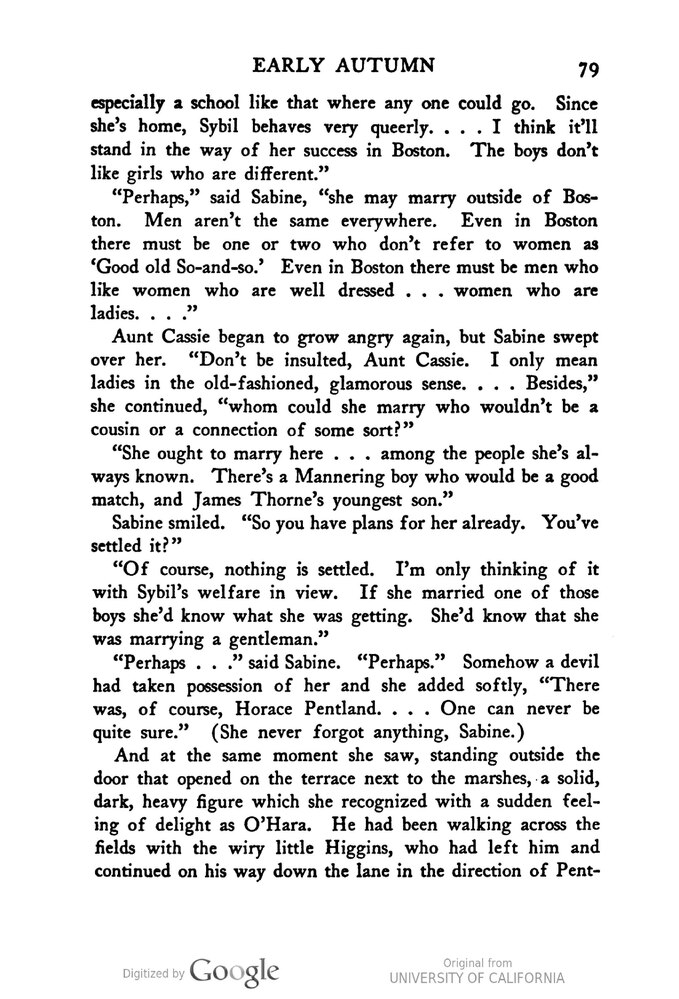especially a school like that where any one could go. Since she's home, Sybil behaves very queerly. . . . I think it'll stand in the way of her success in Boston. The boys don't like girls who are different."
"Perhaps," said Sabine, "she may marry outside of Boston. Men aren't the same everywhere. Even in Boston there must be one or two who don't refer to women as 'Good old So-and-so.' Even in Boston there must be men who like women who are well dressed . . . women who are ladies. . . ."
Aunt Cassie began to grow angry again, but Sabine swept over her. "Don't be insulted, Aunt Cassie. I only mean ladies in the old-fashioned, glamorous sense. . . . Besides," she continued, "whom could she marry who wouldn't be a cousin or a connection of some sort?"
"She ought to marry here . . . among the people she's always known. There's a Mannering boy who would be a good match, and James Thorne's youngest son."
Sabine smiled. "So you have plans for her already. You've settled it?"
"Of course, nothing is settled. I'm only thinking of it with Sybil's welfare in view. If she married one of those boys she'd know what she was getting. She'd know that she was marrying a gentleman."
"Perhaps . . ." said Sabine. "Perhaps." Somehow a devil had taken possession of her and she added softly, "There was, of course, Horace Pentland. . . . One can never be quite sure." (She never forgot anything, Sabine.)
And at the same moment she saw, standing outside the door that opened on the terrace next to the marshes, a solid, dark, heavy figure which she recognized with a sudden feeling of delight as O'Hara. He had been walking across the fields with the wiry little Higgins, who had left him and continued on his way down the lane in the direction of Pent-
